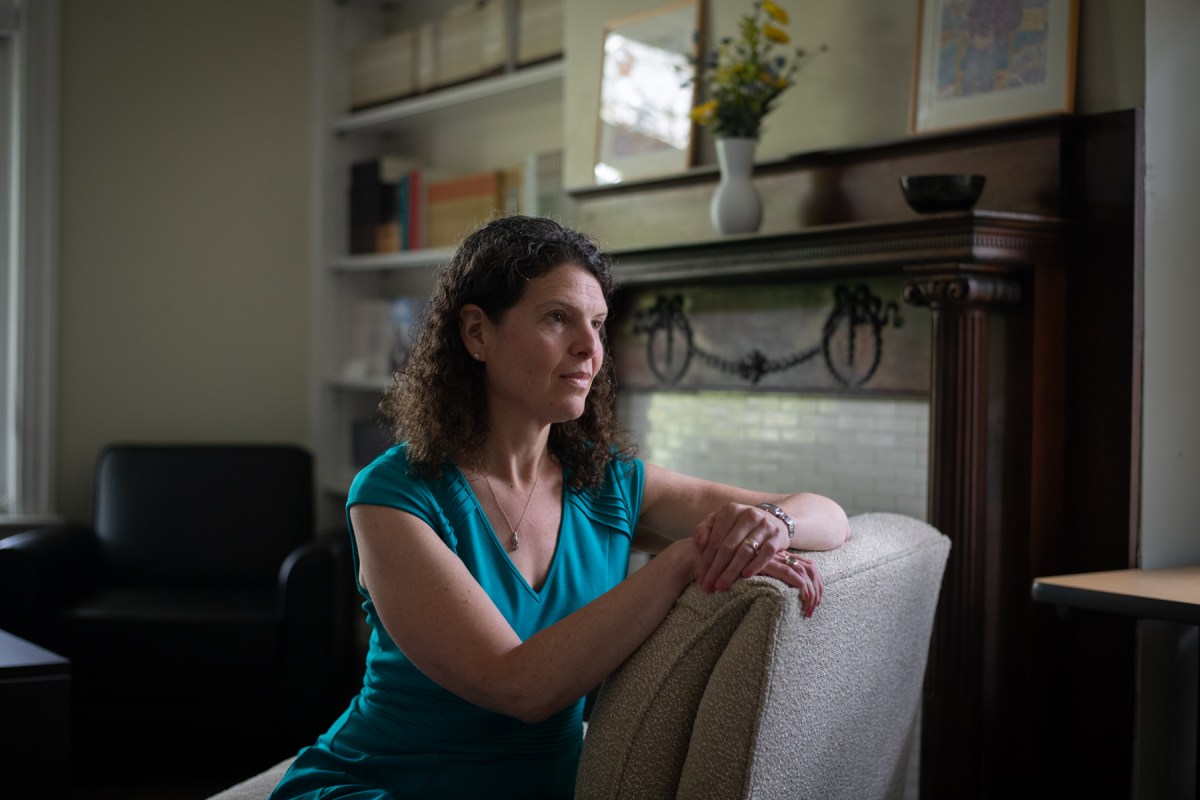When Emily Loeb’s grandmother fled the Nazi regime in Germany in 1938, it was under the fiery skies of Kristallnacht, which translates to “night of broken glass.”
Nearly a century later, as the director of programs and education at the Holocaust Center of Pittsburgh, Loeb continues to tell her family’s story in the same way her grandmother did.
“She saw the synagogue burned to the ground, and then their house was threatened next.”
Her grandmother fled with minutes to spare. “Her leaving was a moment of flight and panic. She was lucky she had secured a visa, but they were unable to get their parents visas.”
Eventually, Loeb’s grandparents made it to the United States, but her great-grandparents were never heard from again after being transported to a ghetto in Poland in 1942. Loeb’s family lost 141 members to the Nazi regime — and they’ve used their story to educate about antisemitism ever since.
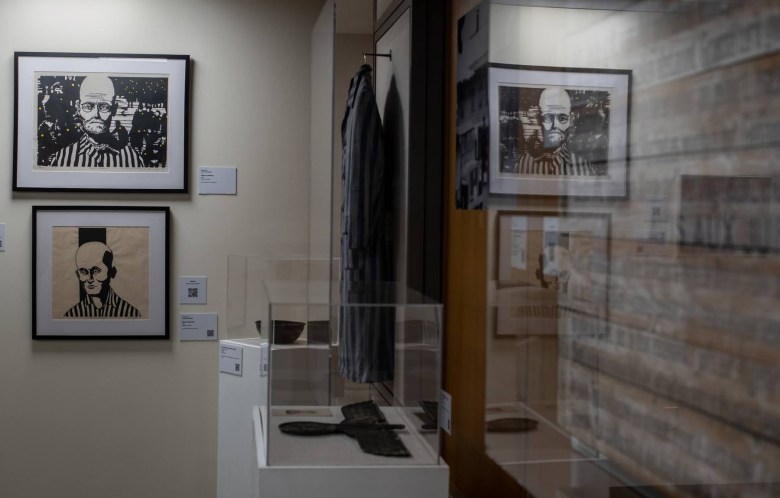
Working toward a more robust model of Holocaust education
This June, Loeb had the opportunity to attend the Jewish Foundation for the Righteous Alfred Lerner Summer Institute for Holocaust Educators. Loeb was one of 28 Holocaust educators chosen from across the nation to attend the five-day event in Newark. Covering topics such as the legal system and medical community during the Third Reich, the fellowship is an intense experience, Loeb said. “This is not beginner-level information. It’s almost like a graduate course.”
One of the biggest impacts from the fellowship, Loeb said, was hearing from some of the most experienced Holocaust teachers across the country.
“I think a lot of people don’t realize … they think the Holocaust is only taught in history class, but it’s taught in English, art, theater and social studies, too. Having lots of different info on hand to provide to teachers is really important.”
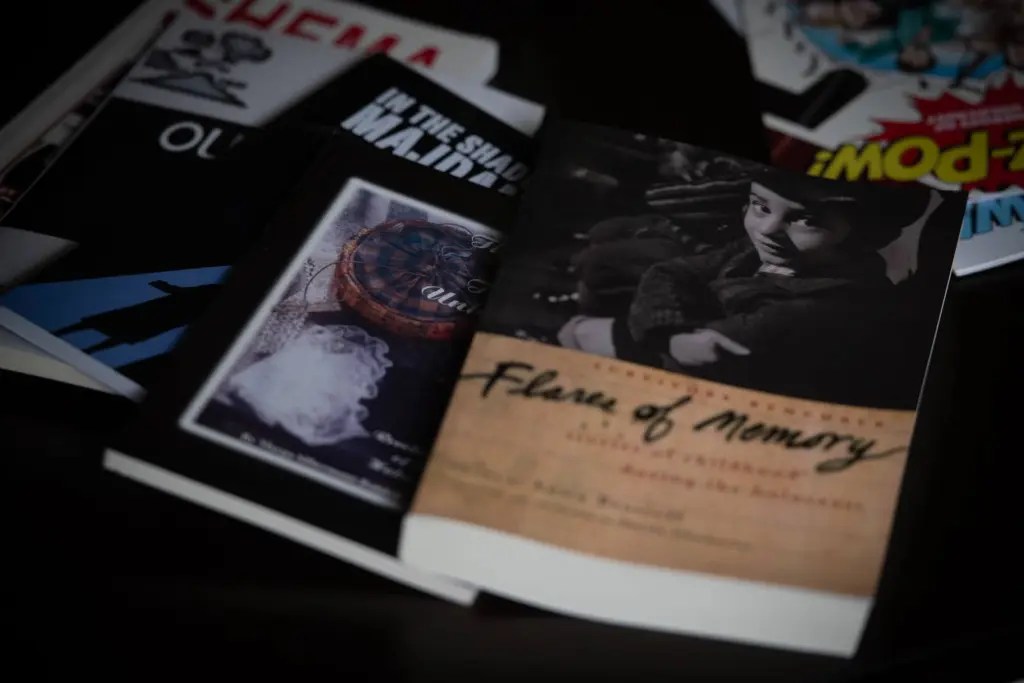
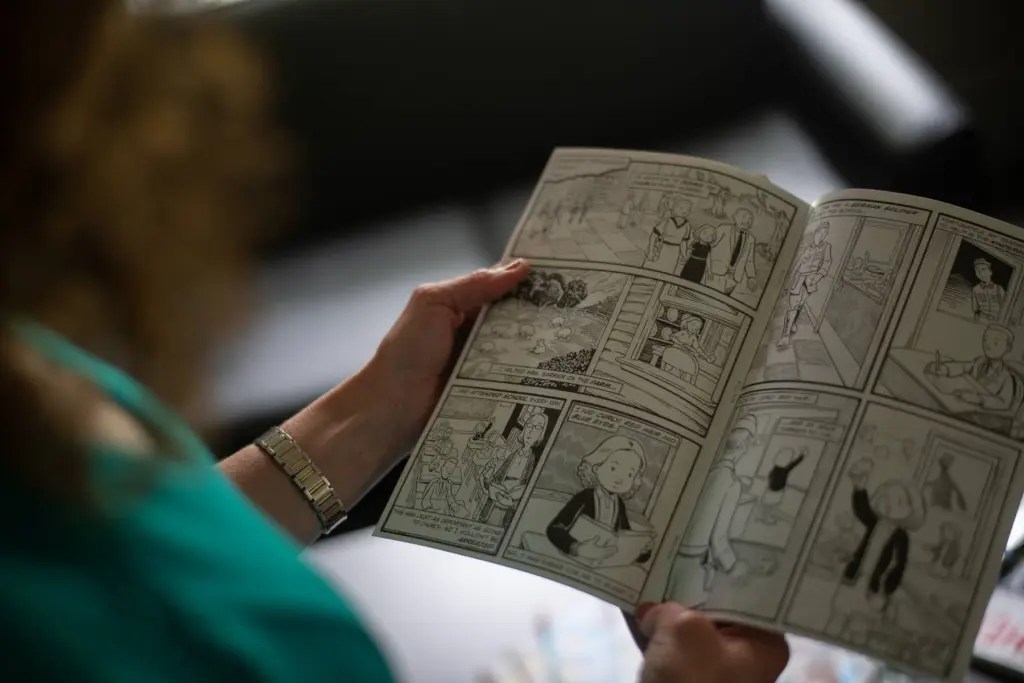
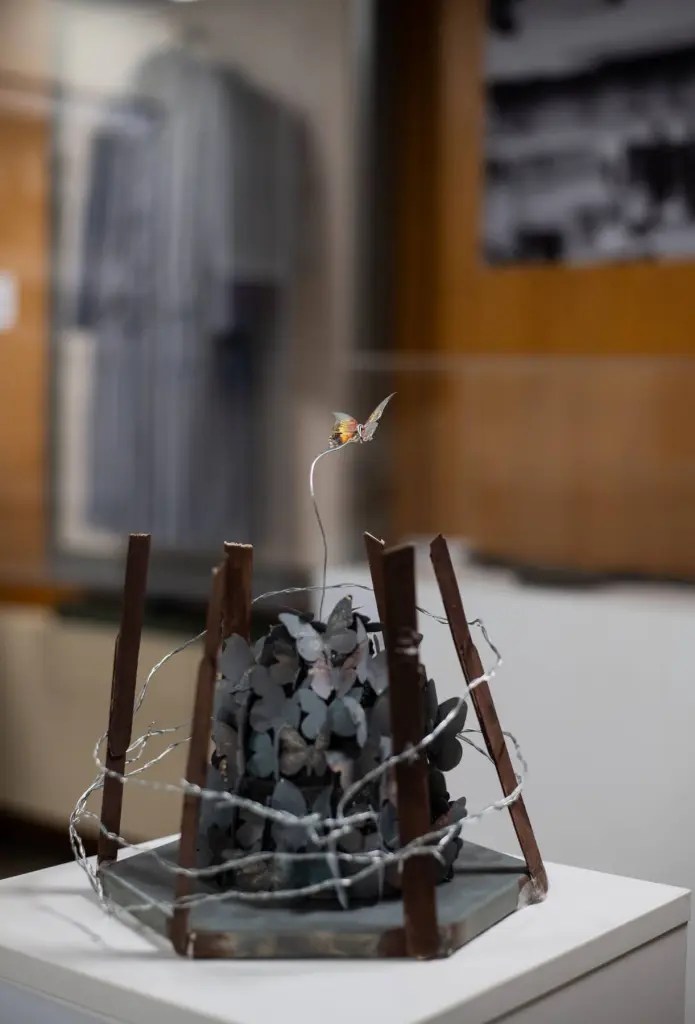
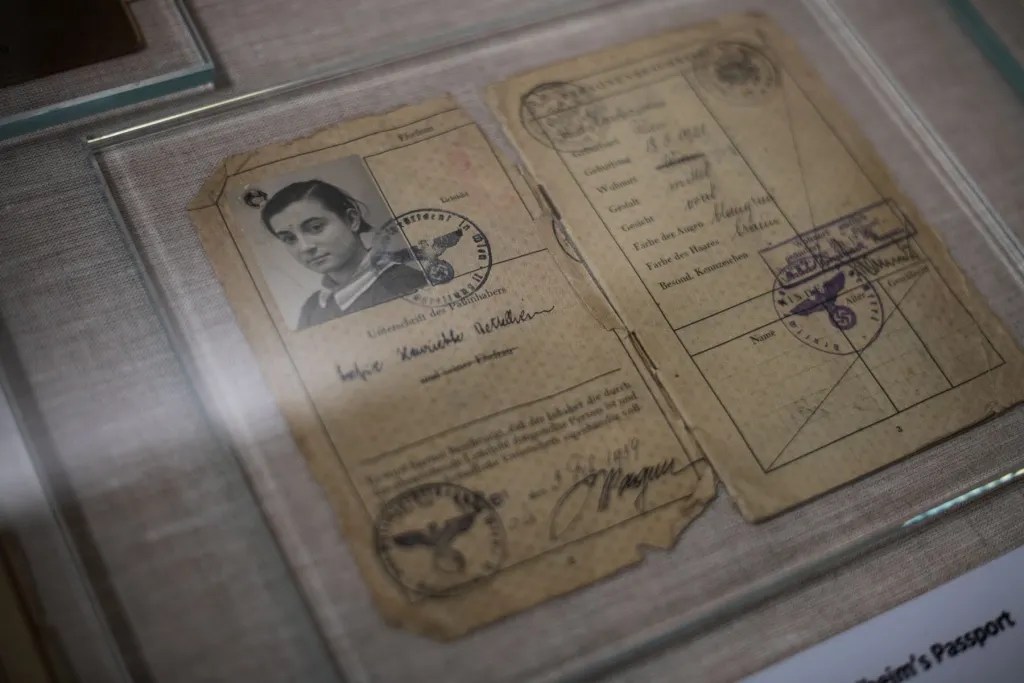
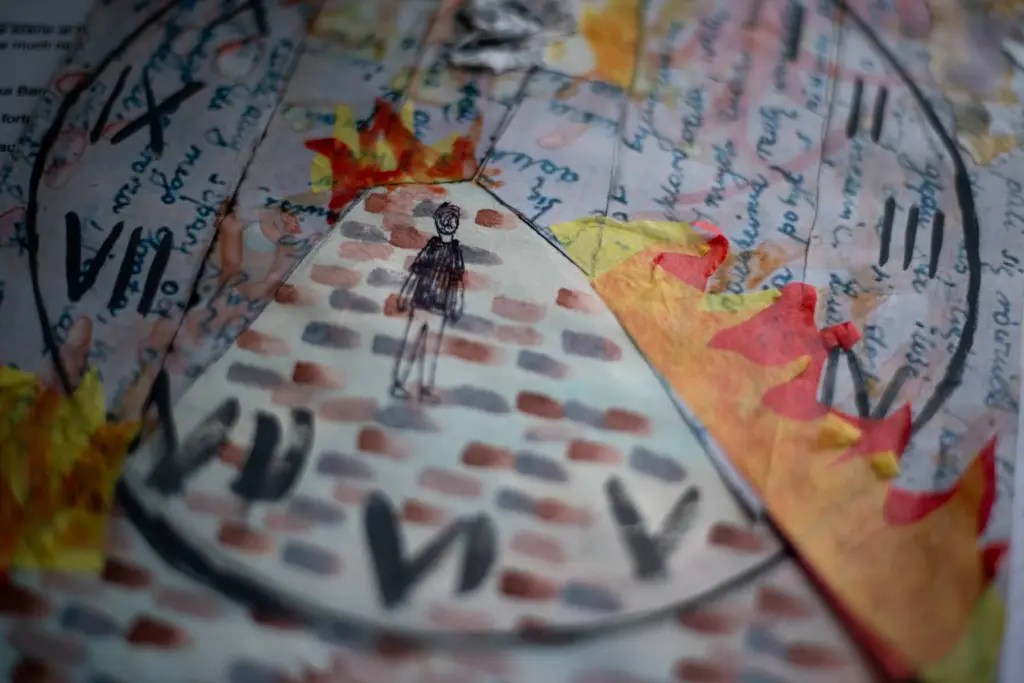
The Holocaust Center provides a variety of ways to engage with the stories of the “heroes” of the Holocaust – from a library of books penned by local survivors, artifacts of the Jewish diaspora, from art contests, to their own series of comic books featuring Holocaust-upstanders called “CHUTZ-POW!”
Part of the Holocaust Center of Pittsburgh’s role in the region is to train local educators to teach the Holocaust, so Loeb hopes that the information and tactics she learned will positively impact students across a city and region still reeling from the most deadly antisemitic attack in U.S. history. Nearly five years after the events of 10/27 at the Pittsburgh synagogue that housed the Tree of Life, New Light and Dor Hadash congregations, Loeb and her colleagues are focused on applying their skills and knowledge to encourage students to be upstanders. Upstanders, she said, are kids who stand up against identity-based hate within their communities, rather than remaining mere bystanders.
“We have a mixture of teachers from public to private, parochial and non-parochial schools from surrounding counties attend our trainings here at the Holocaust Center,” Loeb said.
Antisemitism is on the rise
At the center, teachers hear from Holocaust survivors and their family members and are provided with resources such as comic books, videos and written materials to further study and then share. There are also school assemblies for middle school students and opportunities to visit the center itself for more hands-on learning.
“Since 10/27, the Holocaust Center has worked on developing a more robust educational effort to stand against antisemitism and the racism and xenophobia that accompanies it,” said Loeb.
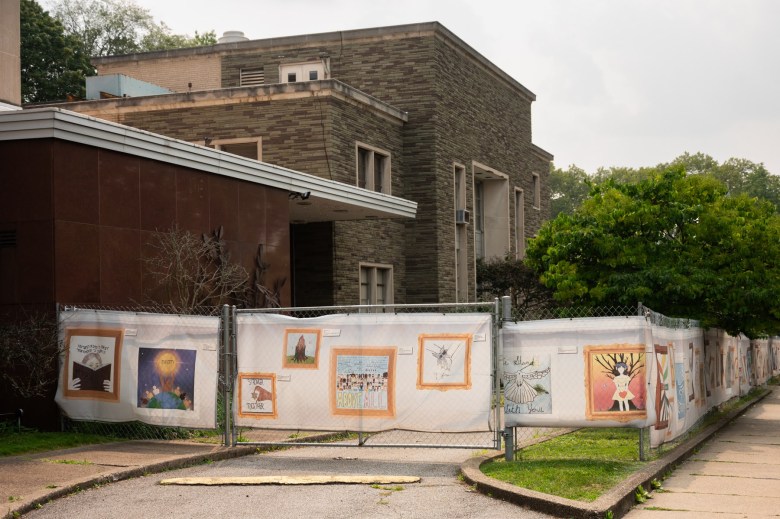
Antisemitic beliefs are still widely prevalent in the United States. The Anti-Defamation League tracks antisemitic attitudes and found that 18% of Americans believe Jews have too much power in the business world, and 22% believe Jews talk too much about what happened in the Holocaust. They also found a 36% increase in antisemitic incidents between 2021 and 2022.
Reaching local educators
For any teacher in the Pittsburgh area looking to further their education, Loeb encourages them to reach out for more information.
The Holocaust Center, currently located at Chatham University, will be housed in the new Tree of Life building, which does not yet have an opening date. The space will provide a central location for worship, healing and education. Loeb said she hopes this space will create room for memory and understanding.
“Our community knows all too well that antisemitism did not end with the Holocaust because of how it shows up throughout history and continues to show up today” she said. “Antisemitism isn’t just a Jewish problem. It’s an everyone problem.”
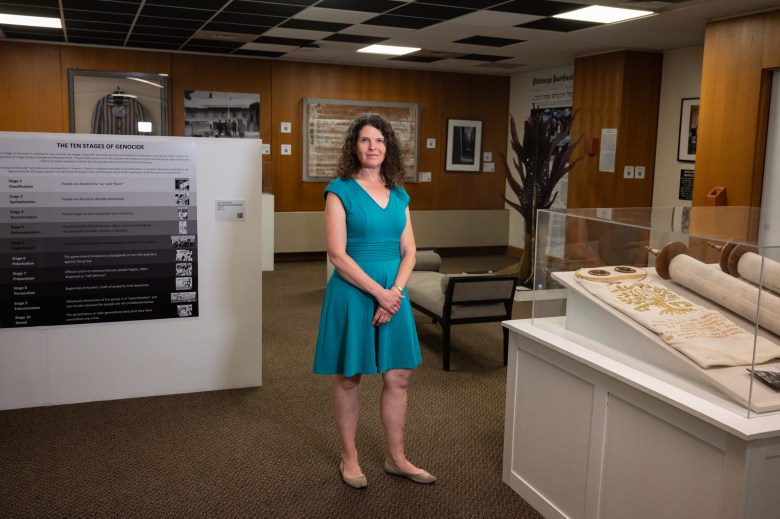
By continuing to foster conversations, Loeb and her colleagues hope to prevent such horrific events from happening again.
“Talking about it makes us aware we can’t just be passive when things happen in this community,” she said. “One of the biggest lessons was for us to see how our community came together — not just the Jewish community, but our entire community. We all need to do this together for each other.”
Meg St-Esprit is a freelance journalist based in Bellevue. She can be reached at megstesprit@gmail.com or on Twitter @megstesprit.

